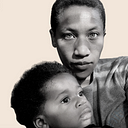Empowering Women to Overcome Sexism in STEM
Post by: Dr. Sarah E. DuRant
At eight months pregnant, I walked into my department head’s office to tell him that I had a job offer from another university. At this university, my now husband had a tenure track position.
My partner and I had been in a long-distance relationship for nearly a decade, hopscotching around the US in pursuit of our academic careers. We had each earned tenure track positions, but at universities that were three hours apart.
While we discussed strategies to find jobs in the same place, we decided to start planning for a family. All of this strategizing, dedication to our careers and our relationship, and stress about keeping both our professional and personal lives intact was exhausting.
That is why I was so insulted when my Department Head’s response to my announcement was, “I was wondering what you guys were thinking,” like we were a couple of irresponsible teenagers.
His response highlighted his ignorance, and perhaps his apathy, about the two-body problem in academia, an issue that primarily forces women out of academic careers.
What was I thinking? Trust me; I had done a lot of thinking. I was thinking about how unfair this field could be and how obnoxious it was that dual-career hires weren’t more often used as recruitment tools instead of hurdles that penalize individuals that made the “mistake” of partnering with a fellow academic.
A NEW START
Shortly after my daughter was born, I felt like I had jumped into the deep blue ocean without a flotation device. Some of this had to do with learning how to be a mother and adjusting to living full-time with my partner, but a lot was related to work.
I was moving my lab to a new university, navigating a new town, building new networks of friends, colleagues, collaborators, mentors, and graduate students from my previous institution while building a new lab group. I was thankful for all of the changes that were happening, but it was a lot.
I felt defeated by the sexism I had experienced throughout my academic career, especially during my first faculty position. I had to dig deep to get my feet back on the ground and renew my confidence in my scientific abilities. I started to find inspiration from my infant daughter.
I remember looking at her and feeling infuriated that someone might exclude her or demean her simply because of her gender. I decided that I couldn’t be a good mother to her without making the world a more supportive place for women.
SUPPORT SYSTEMS FOR WOMEN IN STEM
With this in mind, I began brainstorming ways to help build a better support system for women in STEM fields. Surprisingly, it was this work that also reignited my passion for research.
Women need tools early in their careers that help them navigate and tear down the barriers that prevent them from advancing into the upper echelons of academia and industry.
Women also need better support systems; they need to hear others’ experiences, so they don’t feel isolated when they experience sexism, harassment, or discrimination. We need more women in STEM so that our voice has more strength, and we can change the academic environment by merely being in the room.
To help retain women in STEM careers, I began organizing work-life workshops where invited researchers host a workshop or seminar on topics related to diversity and inclusion in STEM. The first two workshops focused on the attrition of women in STEM academia and gender-specific co-authorship bias and were a great success.
Every workshop I planned made me excited to broaden my efforts, and I began seeking funding to support my evolving plans. I found that support recently through a five-year NSF CAREER award that, in addition to my research, will support for each year of the grant two work-life workshops and two summer research internships for women from marginalized groups through a collaboration with the Department of Biology at UA Pine Bluff.
The workshops are accessible to STEM students at both UA Fayetteville and UAPB. Our first NSF supported workshop occurred in October — a virtual viewing and discussion of the film Picture a Scientist that debuted at the 2020 Tribeca film festival.
The film explores the racism, discrimination, and harassment women in academia often experience by following three women’s stories.
While my efforts alone will not facilitate all the changes we need in academia, I know that if they help just one woman pursue her dream job, then they are worth it. From a personal perspective, it allows me to look my daughter in the eye and say I’m trying.
